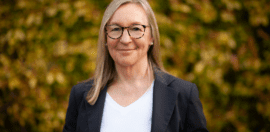Why Dylan Alcott is a breath of fresh advocacy

(AAP Image/Dave Hunt)
19 October 2022 at 8:15 pm
Dylan Alcott is giving the industry a refreshing masterclass in balanced advocacy and thought leadership, writes David Jack.
When Dylan Alcott AO faced the media on October 4 to launch his NDIS report, it did more than energise Australia’s disability community.
Perhaps unintentionally, Alcott gave everyone a refreshing masterclass in balanced advocacy and thought leadership.
Public narratives the world over appear stuck in binary positions, with competing forces unwilling or unable to find middle ground. Public discourse, it could be argued, is increasingly shrill and intolerant of opposing views.
Yet here was Alcott on ABC News Breakfast, and other media outlets, with his signature optimism and pragmatic approach.
He acknowledged the NDIS has issues, but appeared unwavering in his belief that things will get better.
“First and foremost, the NDIS a bloody awesome scheme,” he offered, straight out of the gate when asked about the report by an organisation he founded, Get Skilled Access.
One third of the report speaks about the NDIS scheme’s benefits. Among them, an economic argument. For every $1 invested in the NDIS, $2.25 of economic benefit is generated in the economy – a $52 billion impact in FY20-21.
Other facts from his research supported this optimistic outlook: More than 280,000 people have received disability support for the first time. It’s also making a life-changing impact on young children. After four years as NDIS participants, the evidence shows double the number of children have friends to play – up from 31 per cent to 59 per cent.
“As a kid who grew up with disability, I didn’t really have any friends, I really struggled,” Alcott commented.
Yet for some NDIS participants, and many Australians, that’s a surprising counter-narrative. The $32.9 billion scheme is routinely criticised for its flaws, among them endless reams of complicated red tape.
In April this year, a report in the Financial Review attacked the NDIS, calling it a “mess,” and raising questions about its sustainability. It included a quote from the 2011 Productivity Commission report which described it as “underfunded, unfair, fragmented, and inefficient.”
Labor, meanwhile, has launched a sweeping review of the NDIS. The SMH reported it would look at “excessive” contracts with consultants, lawyers and other service providers who may be overcharging NDIS participants.
Yet for Alcott, that’s history. “We’ve got to get away from talking about the NDIS as this costly, pain in the backside kind of thing,” he argued.
His view, like many in the disability community, is that change will continue to happen as more people with lived experience participate in decision-making. Kurt Fearnley’s appointment as chair of the NDIA is a case in point, Alcott added, cheerily describing his fist pumps on hearing the news.
So what’s to come? With approximately 500,000 people participating in the NDIS, there’s plenty of opportunity. Some 1.5 million people in Australia live with some form of disability.
“What we are calling for is community and government support to ensure no one is left by the wayside,” Alcott explained. Evidence from focus groups revealed NDIS participants were concerned about people who were not part of the scheme.
“It’s money well spent in terms of an investment so people can be who they want to be.”
All told, it was a well-executed media appearance by our Australian of the Year. Evidence-backed insights, a report with 10 realistic recommendations for government, and an impressive spokesperson with lived experience.
Add to that an acknowledgement that nothing will change unless the report’s recommendations are put into action.
No arguments, no anger, no heightened negative emotions that can creep into vital debates about issues that impact the development of a healthy, thriving and inclusive society.
The report – and Alcott’s report – left us wondering, can every NFP CEO, social impact leader and purpose-driven executive emulate his approach as they advocate for change?
The answer could be found by reflecting on his key ingredients: passion, evidence of impact, and a willingness to follow the lead of with those lived experience. In this case, a community spokesperson and leader who is “really excited about the next 10 years”.
It feels like a breath of fresh advocacy, just when it’s needed most. Lead on, Alcott.
ImpactInstitute operates the largest Disability Expo program in Australia, with at least 7 events across the country each year.







